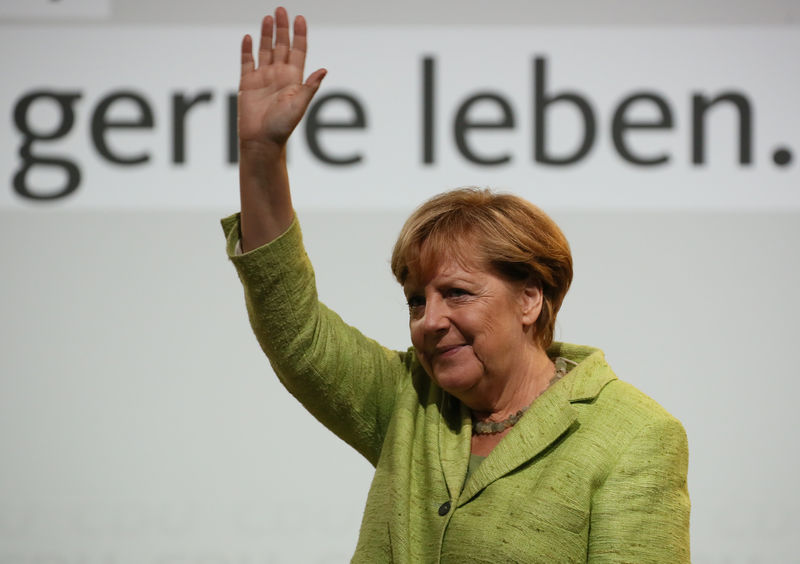By Gabriela Baczynska and John Irish
TALLINN/PARIS (Reuters) - German Chancellor Angela Merkel's call to stop Turkey's European Union accession talks drew a mixed response from the bloc's foreign ministers on Thursday, while French President Emmanuel Macron said Ankara remained a vital partner of the EU.
NATO allies Germany and Turkey have traded increasingly bitter words over the last two years, contributing to an overall souring of Ankara's relations with the EU. President Tayyip Erdogan's crackdown on dissent following a failed 2016 coup attempt has drawn broad condemnation in the bloc.
Merkel announced her toughened stance on Turkey's long-stalled EU bid in a TV debate last Sunday as she faced off with her main rival in national elections due on Sept. 24.
Her Foreign Minister Sigmar Gabriel, arriving for talks with his EU colleagues in the Estonian capital Tallinn, said it was Turkey itself that was moving away from the EU. Austria's Sebastian Kurz reiterated his line that the talks should end.
But Finland and Lithuania spoke out against breaking off the talks, which opened formally in 2005 but stalled over Erdogan's track record on human rights and the unresolved issue of Cyprus - a Mediterranean island that belongs to the EU but of which part falls under an unrecognised protectorate of Turkey.
"No, we should continue the process and engagement. It's not easy but we have to value contacts," Lithuania's Linas Linkevicius told reporters. "By stopping, by cutting, we will ...encourage them even more to go away. I think the effect would be the opposite than what we'd wish."
EU entry talks, no matter how protracted, had long been seen in themselves as a stimulus to Turkish democratic reform; but EU officials see a slide back in recent years with judicial independence and freedom of speech in peril.
Turkey's EU ties minister, Omer Celik, is due to join the bloc's 28 officials for talks in Tallinn later on Thursday.
The EU is wary of upsetting Erdogan, eager to preserve a deal that stemmed the mass migration via Turkey of people from conflict zones in the tumultuous Middle East.
"We have to tread very carefully and, while discussing Turkey's status as a candidate country, we should also discuss the future relationship in all its aspects," Estonia's Sven Mikser said in Tallinn.
He said he did not expect the EU to make any formal decision this year, adding that the bloc needed to cooperate with Ankara on migration and security in particular.
GERMAN ELECTIONS
The French president told Greece's Kathimerini newspaper that ties with Turkey should be maintained.
"Turkey has indeed strayed away from the European Union in recent months and worryingly overstepped the mark in ways that cannot be ignored," he said.
"But I want to avoid a split because it's a vital partner in many crises we all face, notably the immigration challenge and the terrorist threat."
With other countries in the EU also advocating more "strategic patience", the unanimity of 28 member states required to kill off Turkey's bid seems absent.
But suspending accession talks, which the European Parliament has already called for repeatedly, would only require the backing of majority of EU states.
Merkel wants to discuss that with fellow EU leaders at their summit planned in October 19-20, more than three weeks after Germany's election.
A senior Turkish official said EU states must decide whether they wanted Turkey as a member, but there was a sense "they no longer want the marriage...(but) want cohabitation".
Kati Piri, a European Parliament speaker on Turkey, advised suspending the membership track but pushing ahead with customs union talks as the "most realistic leverage the EU can now have to try negotiate some standards with Turkey".
"Turkey under this government does not even uphold the minimum human rights standards now. But we should not take away the EU perspective from the Turkish people, and in suspending talks we would have to name conditions for reviving them."
"But this German twist is triggered by German elections, not by some change on the side of Turkey. So what does Merkel really mean? I think it's likely she will return to her usual pragmatism after the elections," Piri told Reuters.
